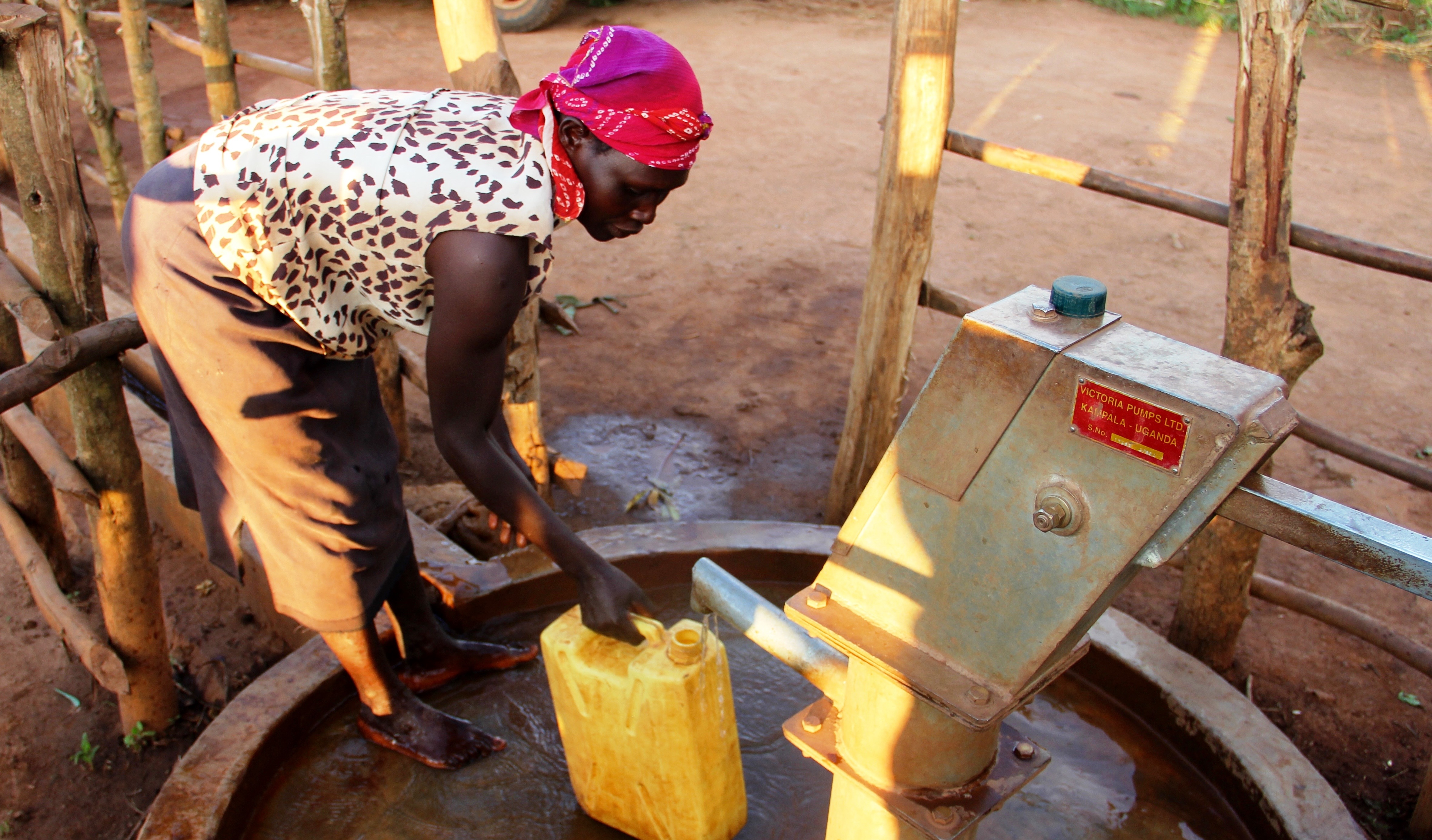
With all the major benefits clean water brings to a community such as improved health and economic growth, something as elemental as taste almost never makes it into the conversation.
Not so for Agnes Akullo.
Agnes has lived in the village of Adula in northern Uganda for her whole life. Previously, she would walk half a mile to a hole in a swamp to gather water for her family. When asked about the impact of the new borehole, taste is the first thing she mentions.
“Swamp water does not taste good,” she said. “It tastes very bad. It smells very bad. It makes our clothes smell bad. It’s disgusting, in fact.”
“This water we are now getting from this borehole tastes much better. It tastes better, it doesn’t smell and it is very safe. My children used to get diarrhea all the time so this water is saving us a lot of time, money and suffering.”
Agnes is 29-years-old and has eight children between the ages of three and 16. All of them are in school except for the youngest.
“This water is also very safe,” she said. “My children used to get diarrhea all the time so the well is saving us a lot of time, money and suffering. It’s also much closer so collection times are shorter.”
All of this saved time has given Agnes an opportunity to supplement her family’s income by baking bread that she sells at the local market. Her husband is a subsistence farmer.
“The borehole has given me the time to do a lot of things I never got to do properly before,” Agnes said. “For example, I’m able to bath the children and do laundry more regularly. Of course, the extra money I’m bringing in is nice, too.”
In addition to a water user committee, Agnes’ village also has a community health club. Both organizations are active in maintaining the borehole as a resource for the 38 households that depend on it.
“It’s great to see them taking such good care of the site,” she added. “No-one around here wants to go back to the way things were.”

With all the major benefits clean water brings to a community such as improved health and economic growth, something as elemental as taste almost never makes it into the conversation.
Not so for Agnes Akullo.
Agnes has lived in the village of Adula in northern Uganda for her whole life. Previously, she would walk half a mile to a hole in a swamp to gather water for her family. When asked about the impact of the new borehole, taste is the first thing she mentions.
“Swamp water does not taste good,” she said. “It tastes very bad. It smells very bad. It makes our clothes smell bad. It’s disgusting, in fact.”
“This water we are now getting from this borehole tastes much better. It tastes better, it doesn’t smell and it is very safe. My children used to get diarrhea all the time so this water is saving us a lot of time, money and suffering.”
Agnes is 29-years-old and has eight children between the ages of three and 16. All of them are in school except for the youngest.
“This water is also very safe,” she said. “My children used to get diarrhea all the time so the well is saving us a lot of time, money and suffering. It’s also much closer so collection times are shorter.”
All of this saved time has given Agnes an opportunity to supplement her family’s income by baking bread that she sells at the local market. Her husband is a subsistence farmer.
“The borehole has given me the time to do a lot of things I never got to do properly before,” Agnes said. “For example, I’m able to bath the children and do laundry more regularly. Of course, the extra money I’m bringing in is nice, too.”
In addition to a water user committee, Agnes’ village also has a community health club. Both organizations are active in maintaining the borehole as a resource for the 38 households that depend on it.
“It’s great to see them taking such good care of the site,” she added. “No-one around here wants to go back to the way things were.”

About The Author: Water to Thrive
More posts by Water to Thrive